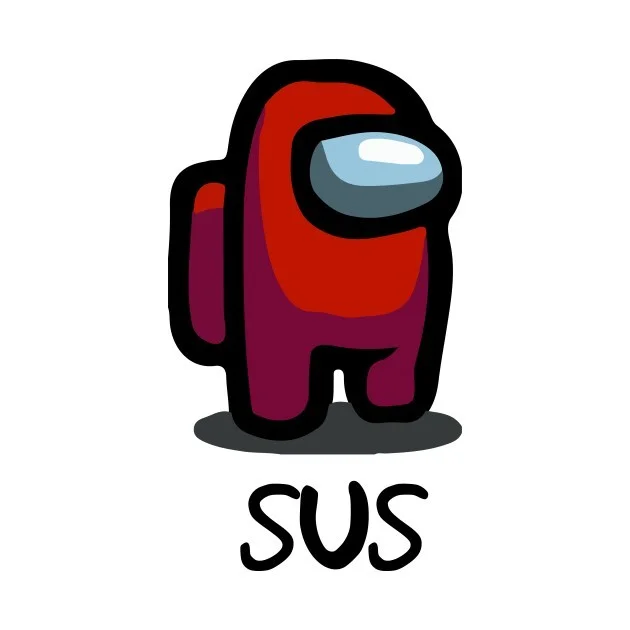Real-Time BNB Signal Analytics
Real-Time BNB Signal Analytics
I tried to figure out what “SUS” means, and now my brain is broken.
Seriously. Someone asked me the other day, "what does sus mean?" and I thought, "Easy. It's that dumb meme from the Among Us game." It’s the internet’s new shorthand for "suspicious." Simple, right?
Wrong. So, so wrong. I decided to do my due diligence, to actually look it up and see the whole picture. And what I found wasn't an answer. It was a symptom of a much larger disease. A disease where our language, our search engines, and maybe our collective sanity have been completely hijacked by memes. What started as a simple question sent me down a rabbit hole so deep I’m not sure I ever came out.
Because when you search for "SUS," you don't find a simple definition. You find a war for meaning being fought in real-time, and the casualties are piling up.
First, you get the corporate nonsense. A press release, dated just this week, screams about a company called "SUS Environment." They’re a "global leading comprehensive environmental provider" building "low-carbon Eco-industrial parks." They're talking about waste-to-energy technology, grate systems, and a 35% market share in Thailand. It's all very serious, very important, and very, very corporate.
And I just have one question: Who in the hell is running the branding department over there? Did they not do a single internet search on their own company's name in the last five years? You’re trying to secure multi-million dollar contracts to solve climate change, and your name is literally the punchline of a video game for twelve-year-olds. Give me a break. It's like naming a financial firm "LOL Capital" or a hospital "Yeet General." You can’t expect to be taken seriously.
But then the search results get darker. Much darker.
I stumbled on a story from a Washington Post journalist in Brazil (I got an ambulance ride, CT scan and ER care in Brazil. My bill: $0.). He’s on vacation, his kid is sick, and then a rusty car hatch slams down on his head. Blood everywhere, he’s woozy, and he's rushed to the hospital. He’s an American, so his first thought, naturally, is: "How much is this going to cost me?"

He gets an ambulance ride, a CT scan, X-rays, and six stitches. The final bill? Zero dollars. Why? Because he was treated by Brazil's public health system, the Sistema Único de Saúde. Everyone in Brazil just calls it SUS. It's a system that provides free care to 215 million people, a literal lifeline enshrined in their constitution. It's underfunded and imperfect, but it's there. It saves lives. It treats the barefoot man with one eye sitting next to the affluent tourist, no questions asked.
And my brain just short-circuited. On one hand, you have a life-saving, nation-spanning healthcare system. On the other, you have a goofy little cartoon spaceman and the word "sus." And thanks to the algorithm, they now live in the same digital apartment complex. Imagine bleeding from a head wound while your brain instinctively flashes an image of a red Among Us crewmate. This is the world we've built. And honestly... I’m not sure it’s working.
Just when I thought it couldn't get any weirder, it did. The next result was about a Dr. Dai Chung, a pediatric surgeon, receiving a Lifetime Achievement Award from the Society of University Surgeons (Chung honored with SUS Lifetime Achievement Award: Honors & Awards). You guessed it: the acronym is SUS. This man has dedicated his life to pioneering research on pediatric cancer. He's saved countless children. And his highest honor comes from an organization whose name is now indistinguishable from a meme about deception and betrayal.
This is more than just dumb. No, "dumb" doesn't cover it—this is a five-alarm dumpster fire of context collapse. It’s a sign that our shared vocabulary is rotting from the inside out, hollowed out by the relentless, context-agnostic churn of internet culture.
Trying to find a "real" meaning for "sus" now is like trying to find a specific, rare fish in an ocean that has been completely choked with billions of identical plastic toys. The original fish—the Brazilian healthcare system, the Society of Surgeons—is still down there somewhere, but you can’t see it for all the floating junk. The algorithm doesn't care about importance or nuance; it cares about clicks. And the Among Us sus meme gets the clicks.
And then, the final nail in the coffin. A document from a government website. "Conozca sus derechos." It's the Bill of Rights... in Spanish. Sus derechos. Your rights. The word "sus" in Spanish simply means "his," "her," "their," or "your." It’s a basic, fundamental possessive pronoun used by hundreds of millions of people every single day.
It’s a complete mess, and offcourse the algorithms just feed the meme beast. The internet has become a place where a foundational word in the Spanish language, a life-saving healthcare network, and a prestigious academic society are all forced to compete for attention with a sus gif of a dancing hot dog. And they're losing.
Let's be real. This isn't just a funny coincidence anymore. It's a hostile takeover. The meme-ification of "sus" has rendered the word almost useless in any other context. It's been culturally poisoned. A single, dominant, low-information meaning has bulldozed every other nuanced, important definition into irrelevance. We didn't just get a new piece of slang; we lost the ability to talk about a national health system, a surgical society, or even basic Spanish grammar without the ghost of a cartoon haunting the conversation. The word didn't evolve. It was conquered.